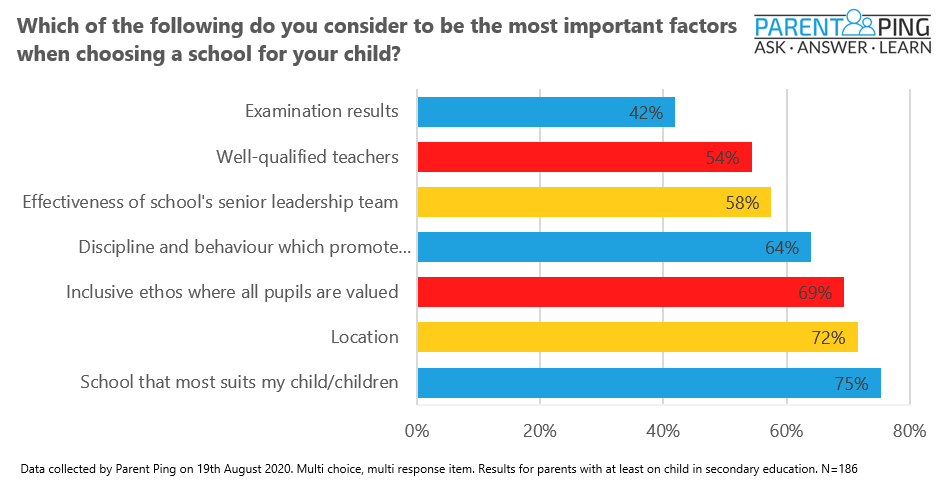
11-plus tests go ahead
The first 11-plus tests of the new school year will take place on September 12th in Birmingham grammar schools. Department for Education guidance suggests all selection tests should be moved to late October or November but many grammar schools have stuck to their original plans to run tests this September. The DfE said that letting children settle back into school before running 11-plus tests would help disadvantaged pupils who are expected to be further behind their peers after the disruption of lockdown. It is sad to see so many grammar schools disregarding this advice. It seems likely that this year’s test will see even lower numbers of disadvantaged pupils qualify for grammar schools, and the figures already make grim reading with just 8% of grammar school pupils in receipt of pupil premium funding.
In Northern Ireland, a judicial review challenged the initial decision to move the test date to late November, and now the tests will take place in January 2021. There appears to be no consistency in grammar school’s approach to 11-plus tests this year, with some schools suggesting the test can not be fair at all and must be cancelled, others allowing children a few months back at school before taking a test, while some admission authorities are acting as if it’s business as usual.
The Equalities and Human Rights Commission warns grammar schools to consider disabled children
 A grammar school was found to have discriminated against a disabled child, with a parent contesting Reading School’s decision that it could not provide a test paper to meet the needs of a partially sighted child. The Equalities and Human Rights Commission has written to all selective schools to remind them of their responsibilities to disabled children. The parent involved said, “Challenging a process that is both arduous and unequal for children with special educational needs is inherently unfair.” It’s clear that the 11-plus test is problematic for many groups of children, with unfairness to SEN pupils particularly hard to quantify. We know that children with dyslexia or other forms of neurodiversity can find processing 11-plus test questions difficult. It is indeed impossible to create a completely ‘fair’ test for school selection, with no evidence of any real benefits to selective education it is best to withdraw these outdated tests.
A grammar school was found to have discriminated against a disabled child, with a parent contesting Reading School’s decision that it could not provide a test paper to meet the needs of a partially sighted child. The Equalities and Human Rights Commission has written to all selective schools to remind them of their responsibilities to disabled children. The parent involved said, “Challenging a process that is both arduous and unequal for children with special educational needs is inherently unfair.” It’s clear that the 11-plus test is problematic for many groups of children, with unfairness to SEN pupils particularly hard to quantify. We know that children with dyslexia or other forms of neurodiversity can find processing 11-plus test questions difficult. It is indeed impossible to create a completely ‘fair’ test for school selection, with no evidence of any real benefits to selective education it is best to withdraw these outdated tests.
 The Parent Ping app surveys parents about their views on education. A recent question asked parents which factors matter to them most when choosing a school. Although the DfE publishes league table data, assuming parents will favour a school with great exam results, academic success was not the most popular reason for choosing a school. A significant proportion of parents valued schools with an inclusive ethos, which is good to see and a positive for our campaign.
The Parent Ping app surveys parents about their views on education. A recent question asked parents which factors matter to them most when choosing a school. Although the DfE publishes league table data, assuming parents will favour a school with great exam results, academic success was not the most popular reason for choosing a school. A significant proportion of parents valued schools with an inclusive ethos, which is good to see and a positive for our campaign. A few years ago the TES wrote about secretive plans for Bucks grammar schools to restrict the proportion of out of county pupils passing the 11-plus. It has now become clear that an employee of test provider CEM, owned by Durham University, was sacked over allegations that the test results should be skewed to favour local pupils. Dr Sue Stothard is expected to receive substantial damages on winning her employment tribunal case.
A few years ago the TES wrote about secretive plans for Bucks grammar schools to restrict the proportion of out of county pupils passing the 11-plus. It has now become clear that an employee of test provider CEM, owned by Durham University, was sacked over allegations that the test results should be skewed to favour local pupils. Dr Sue Stothard is expected to receive substantial damages on winning her employment tribunal case.
Dr Sue Stothard set 11-plus test questions in her role as director at Duham’s Centre for Evaluation and Monitoring (CEM), but in September 2018, the education expert was falsely accused of “colluding” with grammar schools in Buckinghamshire to “skew” test data in favour of “county applications”. She was suspended and subjected to disciplinary action. Although the tribunal found Dr Stothard was wrongfully dismissed it appears that Bucks grammar schools did publish a paper exploring methods of adjusting test scores to favour local pupils, despite this failing foul of the admission code.
Comprehensive Future needs your financial support, please consider donating to help us continue our campaign. DONATE NOW.






